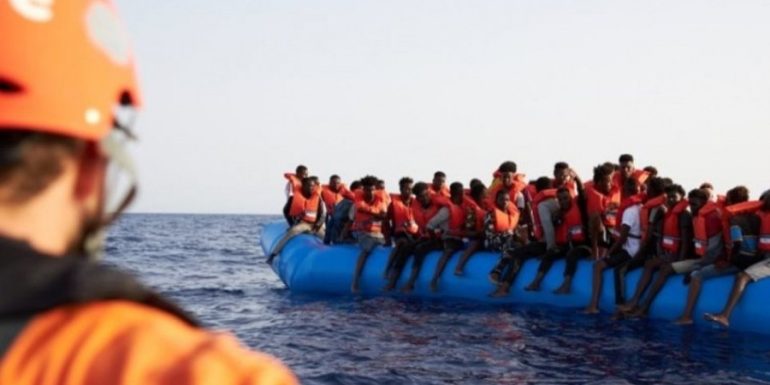Turkey seeks to play the role of the wall of Europe against the waves of immigration again, sending a message to the new government of Berlin that it regulates the flows and that it is the one that protects the EU and not Greece.
Turkey is currently building a wall along its border with Iran to stem any new influx of migrants from Afghanistan.
This wall will cost 100 million euros, while Ankara hosts 4 million refugees in Turkish territory. However, the public opinion of the country has started to get angry with the refugee, which is also combined with the economic crisis, with the result that the episodes of racist violence are very frequent.
However, Ankara will play a very strong role in the immigration card with the new German government, emphasizing the fact that it is the only country in the world that hosts such a large number of refugees in good conditions, a fact that sounds positive in Berlin, both in the previous and in the current German leadership.
A few days ago, German media were in Turkey and Turkish Deputy Foreign Minister Farouk Kamaikci sent a message to reporters - sending a natural message to Berlin.
As he stated in Spiegel magazine, "the Turkish government is not satisfied. "The border between Europe and NATO does not cross Greece, but extends along Turkey." The message to Berlin is clear. "We are holding the immigrant faucet in our hands and not Greece." The Turkish government has already received 6 billion euros from the EU. Its border guards on the border with Iran are also co-financed by the EU.
Turkey is again asking for funds from Europe, a new agreement on immigration, the revitalization of the Customs Union and the constant request for visa liberalization for those Turkish citizens who want to travel to the EU. All the above the new German government and in particular the Foreign Ministry has called them into question. Turkish-German relations will enter a new phase and this has particularly alarmed Ankara.
For this reason we also see the messages that were mentioned about immigration.
As Spiegel characteristically points out, "President Erdogan put pressure on Europeans in the spring of 2020, transporting thousands of migrants to the border with Greece. Kaimaktsi does not intend to launch similar threats in connection with immigration from Afghanistan. "It is not a threat to remind the EU of its obligations," he said. "Turkey is certainly seeking to be paid dearly for the role of Europe's pillar."
Another issue that worries the Turkish government in relation to Germany is the issue of armaments.
Green Minister Analena Berbock, in her response to the German Parliament, clearly set the goals of the new policy on the export of weapons systems. He said: "A new law is being drafted that will set specific standards and rules for the export of German weapons systems outside the EU. An important role will be played by whether the country where the German weapons are exported respects human rights and does not intend to use them. for the oppression of citizens. "Economic interest should not be paramount in these matters," Burbock said.
These statements are ringing the bell in Turkey, as the co-production of the U-240 submarines is still in progress, a co-production that is expected to be completed in 2027, but is currently on the air, awaiting the final decisions of the new German government.
It should be noted that the German Ministry of Economy and Development is also responsible for these exports, in which the current Minister is the co-president of the Greens, Robert Habeck. It will be difficult for Hubeck to continue to give free rein to German arms exports to Turkey.
At the same time, of course, there are strong reactions to Burbok's statements by representatives of the German armaments industry, who emphasize that with their statements the Greens and the Ministry of Foreign Affairs strike a strong blow to this industry, reduce its competitiveness compared to other countries, send thousands of workers unemployment and argue that these countries will turn to other manufacturers.
Source: KYPE
